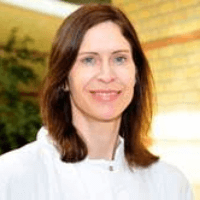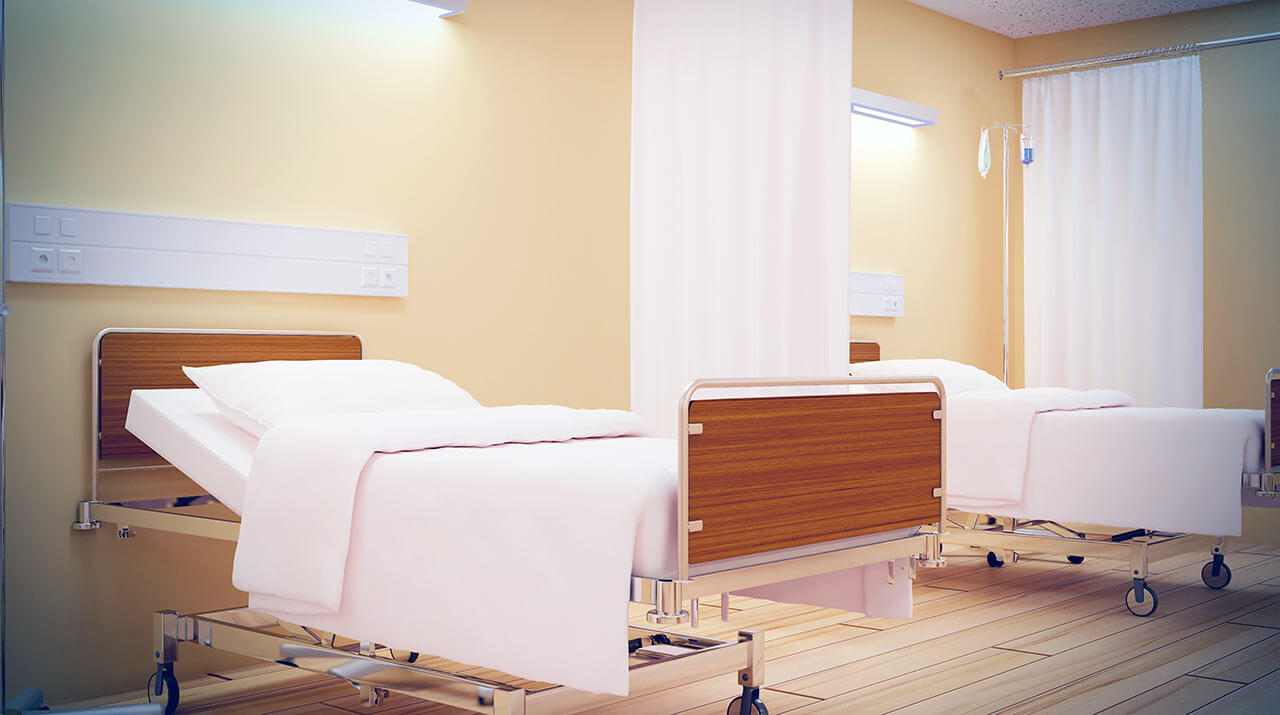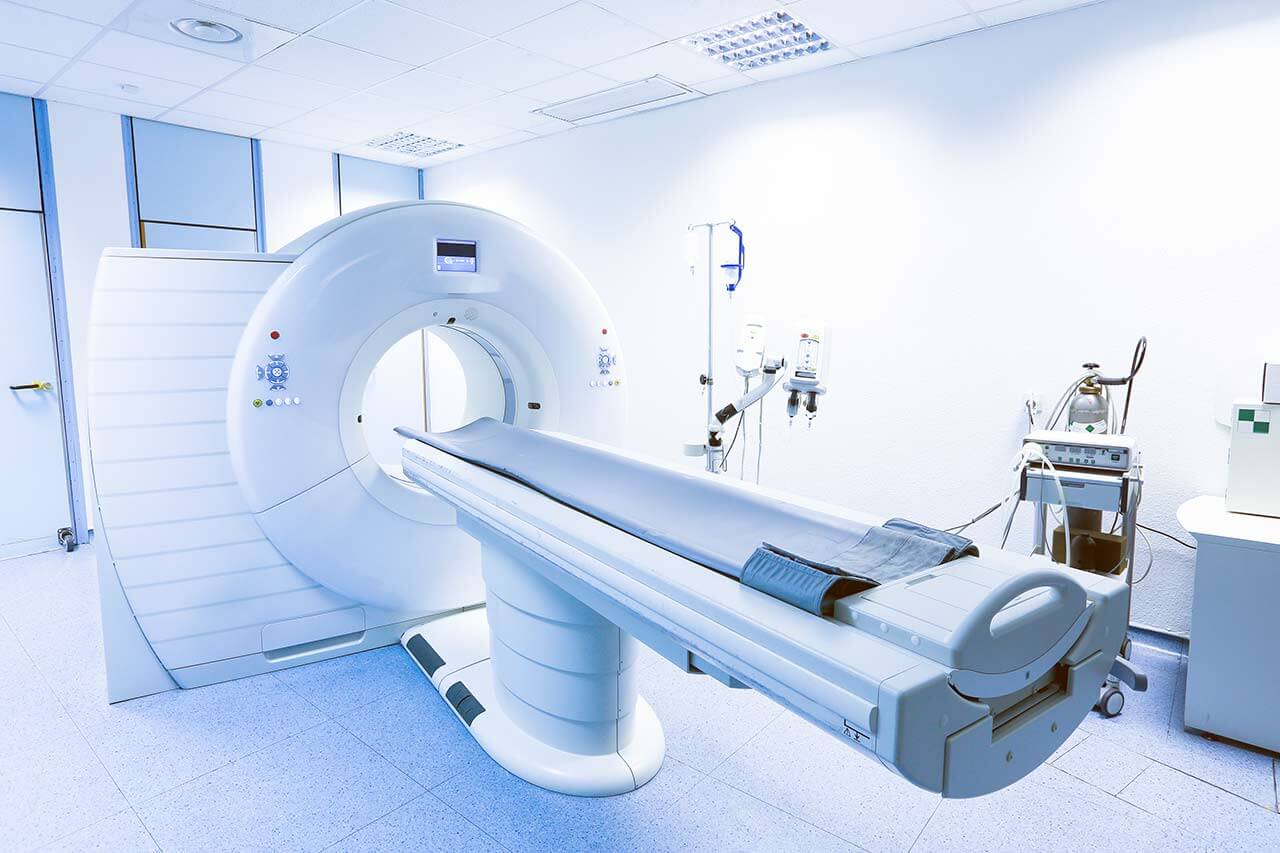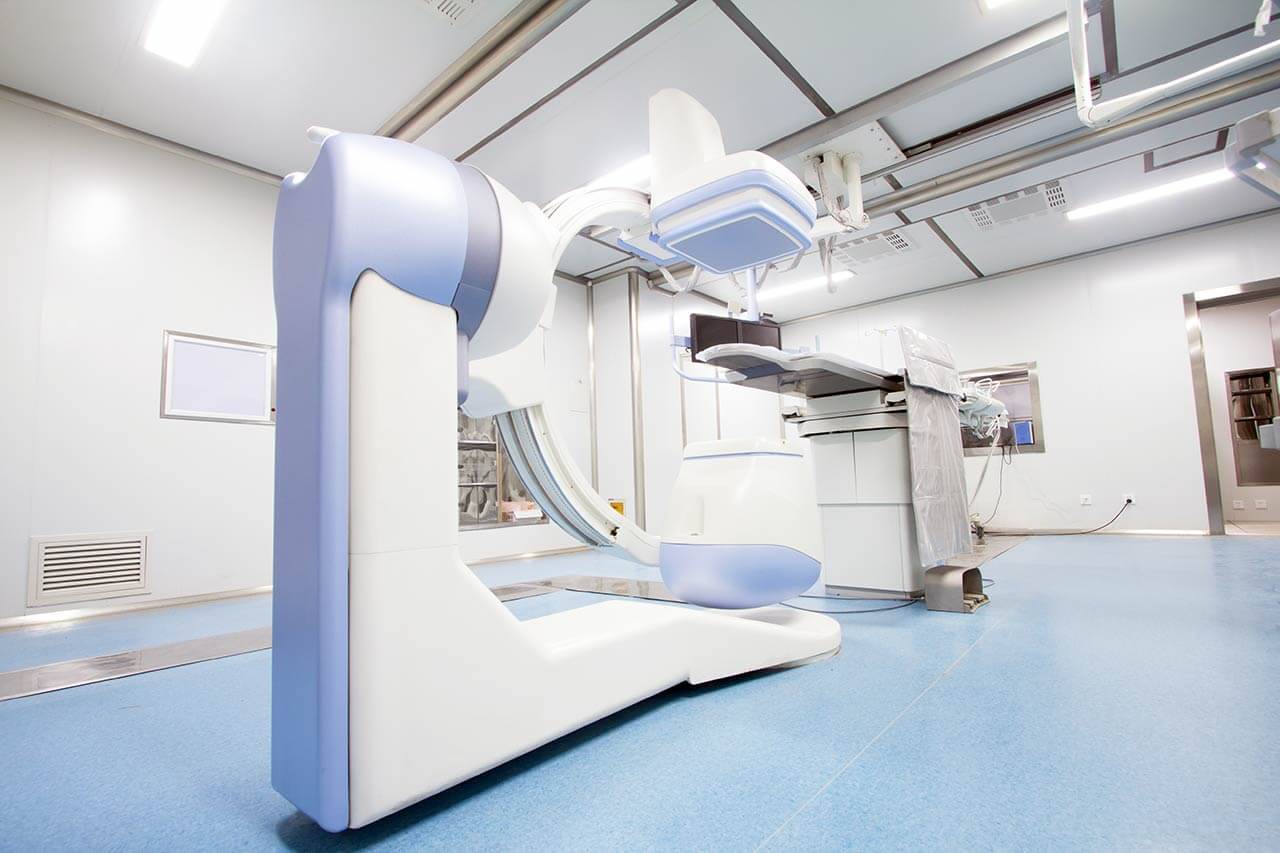
The program includes:
- Initial presentation in the clinic
- clinical history taking
- review of medical records
- physical examination
- neurological examination
- laboratory tests:
- complete blood count
- biochemical blood test
- inflammation markers (CRP, ESR)
- blood coagulation analysis (aPTT, PT, INR)
- electrophysiology study (if indicated clinically)
- CT/MRI scan
(if indicated clinically, additional cost is 650/1200€) - differential diagnosis with other neurological diseases
- nursing services
- consultation of related specialists
- treatment by chief physician and all leading experts
- explanation of individual treatment plan
(the cost of medicines is not included)
Required documents
- Medical records
Service
You may also book:
 BookingHealth Price from:
BookingHealth Price from:
About the department
According to the Focus magazine, the Department of Neurology and Epileptology at the University Hospital Greifswald ranks among the top German medical facilities specializing in the treatment of Parkinson's disease, multiple sclerosis, and dementia!
The department offers a full range of diagnostics and treatment for diseases of the brain and spinal cord, as well as pathologies of the peripheral nervous system. The main areas of the department's clinical practice include providing medical care to patients with stroke, epilepsy, multiple sclerosis, movement disorders, amyotrophic lateral sclerosis, brain tumors, and spinal cord tumors. Numerous specialized outpatient clinics and an advanced Stroke Unit with 10 beds are operating on the basis of the department. The department has 56 beds for patient hospitalization, 5 of which are equipped with video-EEG monitoring systems. The department cooperates closely with specialists in the fields of neurosurgery, neuropediatrics, radiology, psychiatry, human genetics, and others. The department's therapeutic options include drug therapy and physiotherapeutic procedures, including electrical stimulation, magnetotherapy, massage, manual therapy, and other techniques. Special attention should be paid to the high professionalism of the department's neurologists because doctors give due consideration to the patient's comprehensive diagnostics, based on the results of which they develop an optimal course of treatment to achieve a complete cure for the patient or a long-term remission for incurable neurological disorders. The Head Physician of the department is Prof. Dr. med. Agnes Flöel.
The department's team of doctors has been treating stroke patients for many years. There is a specialized Stroke Unit certified in accordance with the standards of the German Stroke Society (DSG). A stroke is an acute disorder of cerebral circulation that leads to the death of nerve cells, as a result of which a patient may develop impaired coordination of movement, swallowing, speech, vision, cognitive functions, etc. Unfortunately, with untimely medical care, a stroke often leads to death, so the key to successful treatment is an immediate hospitalization. If a stroke is suspected, the department primarily performs CT and/or MRI scans, as well as ultrasound examinations. After determining the type of stroke, the department's neurologists begin therapy aimed at eliminating the circulatory disorder in the brain and its consequences. The main treatment for an ischemic stroke (the most common type of the pathology) is thrombolysis. The essence of this therapeutic procedure is the administration of drugs to dissolve the blood clot and restore the blood supply to the brain. In the case of a hemorrhagic stroke, comprehensive drug treatment is carried out, including the prescription of antihypertensive drugs, antispasmodics, analgesics, sedatives, vitamin complexes, etc. After the stabilization of the patient's condition and the completion of treatment, a complex of rehabilitation measures is carried out to restore the functions of the patient's body and return him to his usual way of life.
Another priority focus of the department's work is epilepsy treatment, which is carried out in a modern, highly specialized center. Epilepsy is a pathological condition caused by the impaired electrical activity of the brain. The main manifestation of the disease is periodic seizures, during which a patient experiences twitching of certain parts of the body, loss of consciousness, excessive sweating, salivation, and other symptoms. It is worth noting that an epileptic seizure occurs suddenly and without any apparent reason. At the diagnostic stage, it is important for an attending physician to obtain a detailed description of the patient's epileptic seizures, as this will help him determine the exact type of epilepsy. The most common causes of epilepsy are traumatic brain injuries, brain tumors, alcoholism, infectious diseases, heredity, hormone imbalances, and metabolic disorders. Long experience and a state-of-the-art technical base allow the department's doctors to perform accurate diagnostics of the brain and develop an optimal treatment regimen in accordance with the patient's individual needs. The department's neurologists are responsible for the conservative treatment of epilepsy with anticonvulsants, which achieves excellent results in 70% of cases. Patients with drug-resistant epilepsy often require surgery or a vagus nerve stimulation procedure. These treatment methods are performed by experienced neurosurgeons at the University Hospital. The department's neurologists diagnose and treat more than 1,000 patients with epilepsy annually, and therefore they have unique experience in this field of neurology.
The department's doctors also specialize in treating patients with multiple sclerosis that is a chronic autoimmune nervous system lesion. The disease leads to impaired coordination and vision, numbness in the face and body, and muscle weakness. Multiple sclerosis is more common among young women. The main diagnostic methods for suspected multiple sclerosis are MRI scans of the brain and spinal cord, as well as cerebrospinal fluid analysis. In some cases, electrophysiological studies may also be performed. If the results of the preliminary diagnostics confirm the presence of multiple sclerosis, the department's doctors will immediately begin treatment. In modern medicine, there are no methods by which multiple sclerosis could be completely cured, so therapy is aimed at relieving symptoms and slowing down the progression of the pathology. Immunomodulatory therapy is most often prescribed, after which the patient is regularly monitored by a neurologist and receives symptomatic treatment. The department's doctors have long experience carrying out immunotherapy for multiple sclerosis. In the case of exacerbation or progression of the disease, plasmapheresis or immunoadsorption may be used. Highly qualified rehabilitation therapists, massage therapists, physiotherapists, and other specialists work with patients in the department, whose goal is to improve the patient's health condition and his quality of life.
The department's medical team also demonstrates success in treating movement disorders, such as Parkinson's disease, essential tremor, generalized and focal forms of dystonia, gait disorders caused by neurological pathologies, spastic paralysis, etc. The above-mentioned diseases are usually treated using effective drug therapy regimens in combination with physiotherapy procedures. In the case of Parkinson's disease, invasive treatment with an apomorphine infusion pump and Duodopa pump therapy are also successfully performed. In cooperation with the Department of Neurosurgery, deep brain stimulation is performed for Parkinson's disease, tremors, and dystonia.
The department's range of medical services includes the diagnostics and treatment of the following diseases:
- Movement disorders
- Parkinson's disease
- Essential tremor
- Focal and generalized dystonia
- Neurological gait disorders
- Spastic paralysis
- Extrapyramidal disorders
- Ataxia
- Wilson's disease
- Huntington's disease
- Tourette syndrome
- Stroke
- Dementia states
- Epilepsy
- Chronic headaches
- Neuromuscular diseases
- Amyotrophic lateral sclerosis (ALS)
- Polyneuropathies and other peripheral nervous system diseases
- Neuromuscular junction lesion and impaired muscle function due to it
- Cerebral palsy and other forms of palsy
- Neuroimmunological diseases
- Multiple sclerosis
- Diseases of the nerves, nerve roots, and plexuses
- Meningitis
- Encephalitis
- Myelitis
- Malignant diseases of the central nervous system
- Malignant brain tumors
- Malignant spinal cord tumors
- Other neurological disorders
The department's therapeutic options include:
- Drug therapy with pills
- Infusion and injection therapy
- Thrombolysis for stroke
- Apomorphine pump treatment and Duodopa pump therapy for Parkinson's disease
- Immunomodulatory therapy, plasmapheresis, and immunoadsorption in multiple sclerosis
- Physiotherapy
- Other treatment methods
Curriculum vitae
Higher Education, Board Certification and Additional Qualifications
- 2015 Additional qualification in Geriatrics, Germany.
- 2007 Board certification in Neurology, Germany.
- 1999 Doctorate, Hannover Medical School, Germany.
Academic Degrees
- 2008 Habilitation, Department of General Neurology, University Hospital Muenster, Germany.
- 1999 Thesis, Dr. med., Hannover Medical School, Germany.
Professional Career after Completing Medical Degrees
- 2013 - 2017 Professor for Cognitive Neurology at the NeuroCure Clinical Research Center, University Hospital Charite Berlin, Germany.
- 2009 - 2013 Professor for Pathophysiology of Cerebrovascular Diseases at the Department of Neurology, University Hospital Charite Berlin Germany.
- Since 2009 Senior Attending Neurologist, Head of Memory Clinic, Department of Neurology, University Hospital Charite Berlin, Germany.
- Since 2010 Principal Investigator at the Center for Stroke Research Berlin, University Hospital Charite Berlin, Germany.
- Since 2011, Principal Investigator at the Berlin School of Mind & Brain, Cluster of Excellence NeuroCure, Humboldt University of Berlin, Germany.
Awards and Honors
- 2012 Heinrich Pette Prize from the German Neurological Society.
- 2010 Damp Prize for Rehabilitation, Germany.
- 2007 - 2009 Member of the Young Scientists at the Academy of Sciences.
- 2006 - 2007 Lise Meitner Habilitation Scholarship of North-Rhine Westphalia.
- 2000.02.04 Poster Prize at the Human Brain Mapping Conference.
- 2003 Fellowship Award from the National Institutes of Health, USA.
Other Professional Activities
- 2007 - 2010 Project Leader in Collaborative Project "Exercise-induced learning facilitation via up-regulation of dopamine" (BMBF).
- 2010 - 2013 Coordinator of Collaborative Project "Effects of Dietary Interventions on the Brain in Mild Cognitive Impairment (MCI)" (BMBF).
- 2011 - 2014 Clinical Coordinator of Multicenter RCT "Effectiveness of Intensive Aphasia Therapy Under Routine Clinical Conditions" (BMBF).
- 2015 - 2020 Coordinator of Collaborative Project "Brain Plasticity for Active Aging: Enhancing Sensory, Motor, and Cognitive Function by Training Interventions and Non-invasive Brain Stimulation" (BMBF).
- 2015 - 2020 Project Leader within Collaborative Project "Smartage: Neurobiological basis of polyamine protection from age-induced memory decline" (BMBF).
- 2013 - 2016 Coordinator and PI of Multicenter RCT "Physical Activity in Subacute Stroke" (BMBF).
- Since 2011 Elected Member of the Review Panel, Alexander von Humboldt Foundation, Germany.
- Since 2012 Editorial Board, Journal "Stroke".
- 2017 - 2018 President for the German Society for Neurophysiology and Functional Magnetic Resonance Imaging.
Photo of the doctor: (c) Universitätsmedizin Greifswald
About hospital
According to the reputable Focus magazine, the University Hospital Greifswald is included in the ranking of the best medical complexes throughout Germany!
The hospital is one of the oldest healthcare facilities in Germany, with long traditions and an excellent reputation. The history of the hospital begins in 1456, when the Faculty of Medicine at the University of Greifswald was founded. During this time, the hospital has managed to earn recognition in the national medical arena and gain prestige abroad. The hospital has 19 institutes and 21 specialized departments. The key to successful clinical practice is the combination of state-of-the-art equipment and highly qualified medical personnel who are actively engaged in the development of effective medical techniques and implement them in everyday practice.
The medical team of the university hospital has more than 4,400 employees, including world-famous professors who regularly undergo advanced training in the leading European and American hospitals, where they share their experience with foreign specialists. The doctors at the medical facility annually treat about 180,000 patients. At the same time, the specialists often provide medical care to patients with complex clinical cases, even in those cases that doctors at other medical centers consider hopeless. The hospital has more than 1,000 beds for inpatients, and many highly-specialized outpatient clinics are available in the medical facility for counseling and outpatient medical care.
The hospital presents all the fields of modern medicine. According to Focus magazine, the medical complex is recognized as one of the best in Germany for treating bowel cancer, bladder cancer, malignant brain tumors, skin cancer, multiple sclerosis, Parkinson's disease, dementia, cardiovascular pathologies, knee and hip pathologies, as well as ophthalmic and proctologic diseases. Diagnostic and therapeutic procedures are carried out in strict accordance with national and international standards, which ensures top-class medical care.
The medical team at the hospital makes sure that each patient feels as comfortable as possible during the therapeutic process. Doctors and nursing staff show humanity and understanding, striving to support each patient in every possible way on the path to recovery.
Photo: (с) depositphotos
Accommodation in hospital
Patients rooms
The patients of the University Hospital Greifswald live in comfortable single and double rooms. The patient rooms are made in bright colors and are quite cozy. The furnishings of a standard patient room include an automatically adjustable bed, a bedside table, a TV, and a telephone. The patient room has a table and chairs for receiving visitors. There is also free Wi-Fi in the patient rooms.
If desired, patients can live in enhanced-comfort rooms. In such rooms, patients are additionally offered toiletries, a bathrobe, and a change of towels.
Meals and Menus
The patients of the hospital are offered three healthy and tasty meals a day: a buffet breakfast, a hearty lunch, and dinner. The hospital also houses a cafeteria where one can have a tasty snack, a cup of aromatic coffee, tea, or soft drinks.
Patients staying in enhanced-comfort rooms are offered a special menu with a wide range of main courses, appetizers, desserts, and drinks.
Further details
Standard rooms include:
Religion
The services of representatives of religions are available upon request.
Accompanying person
Your accompanying person may stay with you in your patient room or at the hotel of your choice during the inpatient program.
Hotel
You may stay at the hotel of your choice during the outpatient program. Our managers will support you for selecting the best option.




